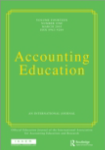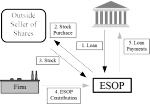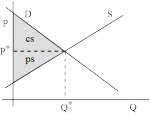This is a reprint from the journal Economic Thought of a paper on the labor theory of property and the neoclassial theory of marginal productivity.
PBS Making Sen$e blog: The case for employee-owned companies
This is the “justice in production” argument in a nutshell posted on the PBS Making Sen$e website.
Classical Liberalism and the Firm
This is a scan of my chapter in the new book: Commerce and Community: Ecologies of Social Cooperation, edited by Robert F. Garnett, Paul Lewis, and Lenore T. Ealy. London: Routledge, 2015.
On the Renting of Persons: The Neo-Abolitionist Case Against Today’s Peculiar Institution
To answer the “best case” voluntary-contractarian arguments for slavery and autocracy, the democratic and antislavery movements forged arguments not simply in favor of consent but arguments that voluntary contracts to legally alienate aspects of personhood were invalid “even with consent”—which made the underlying rights inherently inalienable. Once understood, those arguments have the perhaps “unintended consequence” of ruling out today’s self-rental contract, the employer-employee contract.
American Revolution Applied to Corporations
The basic idea of the talk was to take the fundamental principles of the American Revolution and apply them to the economic sphere.
Double-entry Bookkeeping: The Mathematical Treatment
This publication represents success in a long struggle, stretching over three decades, to get the mathematical treatment of double-entry bookkeeping published in an accounting journal.
Talk on property theory at UMKC, Nov. 2014
These are the slides, with some minor additions and editing, for a talk On Property Theory given at the University of Missouri at Kansas City Economic Department November 17, 2014.
Property and Production
This is the 30th anniversary of the publication of this paper, Property and Production, which laid out the whole property-theoretic analysis of production. I would not change a word today.
Zagreb Talk Sept 2014
These are the slides and a video of a talk in Zagreb Sept. 8, 2014 on green issues and ESOPs.
On a fallacy in the Kaldor-Hicks efficiency-equity analysis
This paper shows that implicit assumptions about the numeraire good in the Kaldor-Hicks efficiency-equity analysis involve a “same-yardstick” fallacy.








